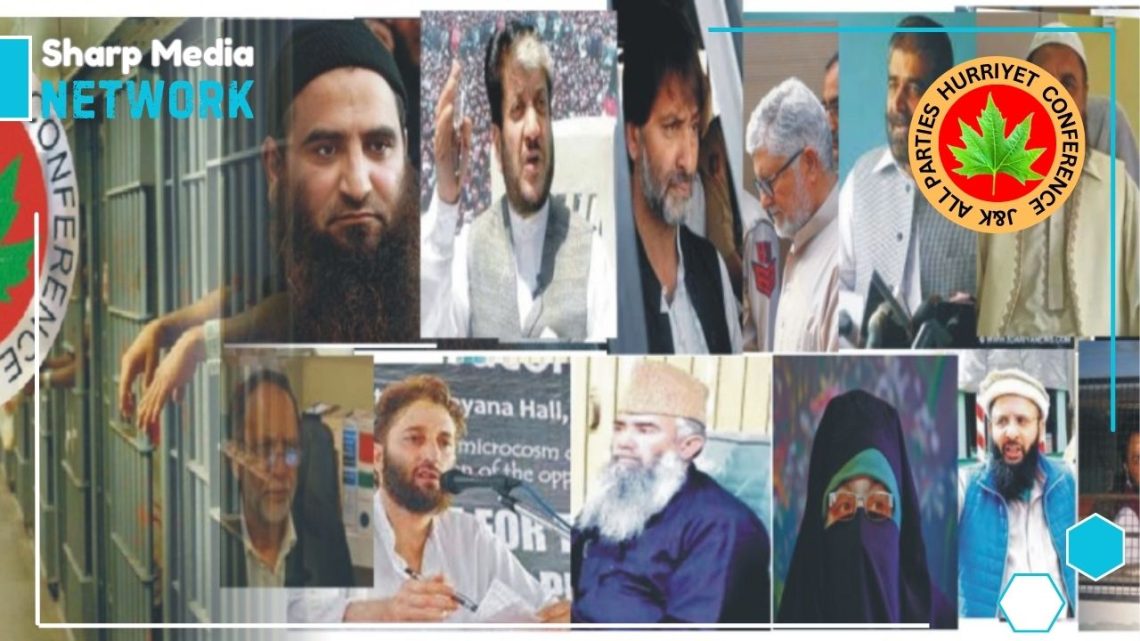
APHC Raises Voice for the Detained Kashmiri Leaders
January 9, 2025Behind bars and silenced, Kashmir’s leaders endure injustice as the world watches in silence.
The All Parties Hurriyat Conference (APHC) has voiced grave concerns over the extended and unlawful detention of thousands of Kashmiri leaders and activists. These individuals remain imprisoned under harsh conditions in Indian jails and Indian Illegally Occupied Jammu and Kashmir (IIOJK), enduring what many view as an orchestrated strategy to suppress the Kashmiri people’s pursuit of self-determination.
Advocate Abdul Rashid Minhas, the APHC’s spokesperson, highlighted the appalling treatment faced by the detainees, particularly those held in Delhi’s Tihar Jail and other notorious facilities. These political prisoners, detained under stringent and often criticized laws, are reportedly denied access to essential rights such as proper medical care and legal assistance. This systematic deprivation, the APHC argues, reflects India’s larger policy of repression aimed at stifling dissent in IIOJK.
Among those detained are prominent figures like Musarat Alam Butt, Mohammad Yaseen Malik, Shabbir Ahmed Shah, Aasiya Andrabi, and Naeem Ahmad Khan. Despite their peaceful advocacy for Kashmir’s political rights, they have been accused of fabricated charges designed to legitimize their imprisonment. The APHC condemns such actions, stating that the ongoing incarceration of these leaders exemplifies a grave miscarriage of justice and blatant disregard for international human rights norms.
The silence of international human rights organizations on these issues has also come under scrutiny. The APHC has criticized these entities for failing to act against the violations occurring in IIOJK. By turning a blind eye to the plight of detainees, these organizations inadvertently enable the continuation of oppressive practices. The APHC urges global bodies to fulfill their ethical and professional responsibilities by intervening to prevent wrongful convictions and ensure fair treatment for the political prisoners.
The oppressive environment in which these detainees are held is emblematic of the broader struggle faced by the people of IIOJK. The denial of fundamental rights, including freedom of speech and peaceful protest, showcases the challenges of addressing dissent in conflict zones. The APHC asserts that such actions are not just violations of individual rights but part of a calculated effort to quash the Kashmiri people’s legitimate aspirations.
The APHC continues to advocate for a peaceful resolution to the Kashmir conflict, emphasizing that peace in South Asia hinges on addressing this long-standing issue. The region’s designation as a nuclear flashpoint underscores the global stakes involved. The organization stresses that the aspirations of the Kashmiri people must be central to any solution, as continued neglect risks exacerbating tensions and undermining regional stability.
By intertwining the personal struggles of detainees with the geopolitical implications of the Kashmir conflict, the APHC’s call for action highlights the urgent need for both local and international stakeholders to address the situation. As the detainees endure their imprisonment, their plight symbolizes a larger struggle for justice and self-determination that remains unresolved.

